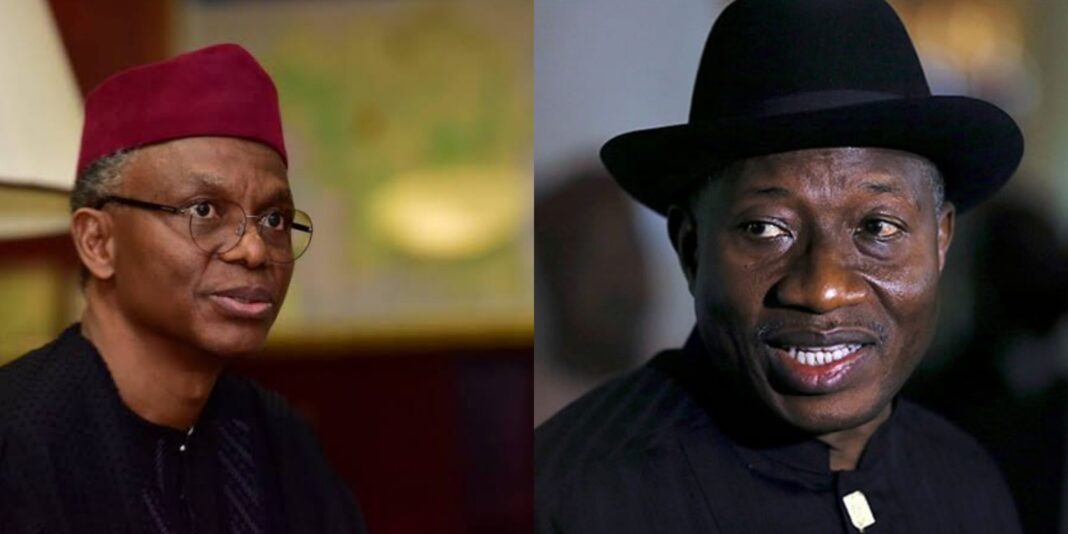Former Governor of Kaduna State, Nasir El-Rufai, has explained the reasons behind his role in the political coalition that led to the defeat of then-President Goodluck Jonathan in the 2015 general elections.
Addressing claims that political alliances are often formed to undermine southern presidents, El-Rufai dismissed such notions, stressing that the 2015 merger was driven by dissatisfaction with Jonathan’s leadership and the urgent need for political survival among opposition parties.

Poor Performance and Broken Promise
According to El-Rufai, the first major factor that united the opposition was the widespread perception that Jonathan’s administration was underperforming. He also recalled that Jonathan had earlier pledged not to seek re-election in 2015, a promise he later broke—sparking internal tensions within the Peoples Democratic Party (PDP).

Merger for Political Survival
El-Rufai emphasized that the formation of the All Progressives Congress (APC) — a merger of opposition parties including the Congress for Progressive Change (CPC), Action Congress of Nigeria (ACN), and All Nigeria Peoples Party (ANPP) — was not a regional attack but a strategic move to challenge PDP’s dominance.
“It was an act of self-preservation,” he said. “Unless we came together, the PDP would continue to crush opposition parties, election after election.”
He explained that the PDP had a pattern of isolating and weakening smaller parties, and the only way to challenge that was to form a united front.

Not About Regional Politics
El-Rufai rejected the narrative that the coalition was aimed at removing a southern president, stating:
“There was, of course, the feeling that Jonathan was doing a bad job. Let’s get him out. I don’t think it had anything to do with North or South.”

He insisted that the merger was not a regional plot, but a response to what many believed was ineffective governance and the threat of political marginalization under the PDP.
In conclusion, El-Rufai described the APC merger as a strategic necessity, motivated by political realities rather than ethnic or regional agendas.





